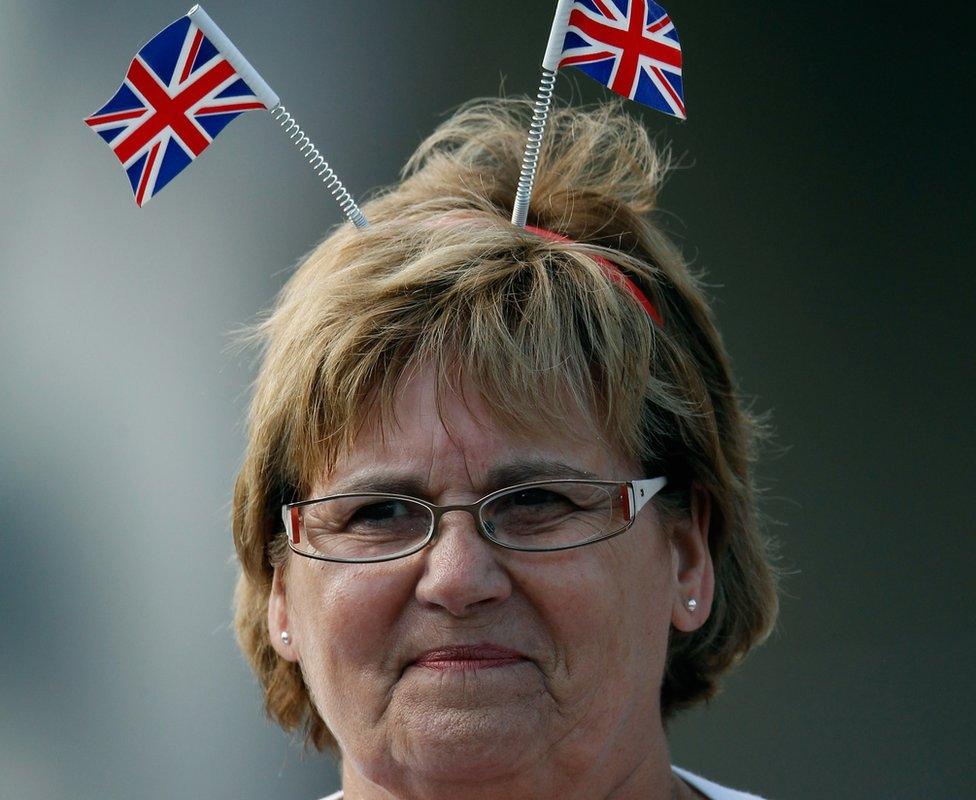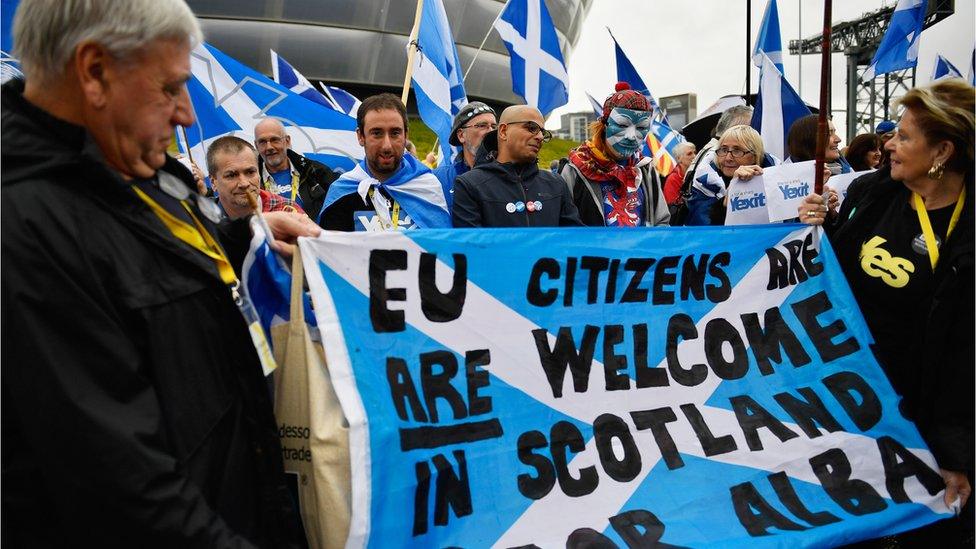Nationalism 'means something different' in Scotland
- Published

It probably comes as little surprise that the BBC survey of national identity shows national identity in Scotland is different from that in England.
What, perhaps, is less obvious is that what nationalism means in the two countries is different too.
A strong sense of British identity is less widespread in Scotland than elsewhere in Britain.
Only 59% of people in Scotland say they feel strongly British, well down on the 79% who do so in Wales and the 82% in England.
Conversely, more than four in five say they feel strongly Scottish.
Indeed, as many as 61% saying they feel "very strongly" Scottish.
In contrast, only 54% of people in England feel "very strongly" English, while just 41% of those in Wales claim they are "very strongly" Welsh.
It is, then, little wonder that nationalism is relatively strong in Scotland.
Feeling Scottish is something that most people in Scotland share in common, whereas feeling British or not can be a source of division.

61% of people in Scotland feel "very strongly" Scottish
A strong Scottish identity - and a weak British one - is the hallmark of SNP support.
No less than 79% of those who voted for the party in last year's general election say they feel "very strongly" Scottish, whereas only 9% say they feel "very strongly" British.
In the absence of a major English nationalist party the nearest we can come to identifying a group of "English nationalists" south of the border are the one in six people in England who say they are English and are not British.
The views of SNP supporters and our "English nationalists" are often very different from each other.
No less than 70% of "English nationalists" say that "England was better in the past" and only 13% that its "best years are still in the future".
In contrast, just 16% of SNP supporters believe that "Scotland was better in the past", while as many as 64% feel that the country's best years are yet to come.
Perhaps the optimism of SNP supporters is sustained by the prospect that one day Scotland will become independent and their belief - disputed by others of course - that Scotland will be better off as a result.
"English nationalists" tend to be older voters, some of whom perhaps are inclined to think that Britain was better when they were young.
However, SNP supporters and "English nationalists" also differ in what they think it takes for someone to be Scottish or English.

In England, politicians have tended to promote Britishness

The SNP has long argued that it promotes an inclusive sense of Scottish identity - anyone who comes to live in Scotland has the right to be regarded as Scottish, irrespective of whether they or their parents were born in Scotland or not.
In England, however, politicians have tended to promote Britishness rather than Englishness as the identity to which all living in England can lay claim.
This contrast is reflected in the views of SNP supporters and "English nationalists".
True, not every SNP supporter takes their party's perspective to heart.
Only about half (47%) say that someone who has lived in Scotland for more than 10 years makes someone Scottish.
However, that is nearly twice the proportion of "English nationalists" (25%) who say that having lived in England for more than 10 years makes someone English.
SNP supporters also seem relatively happy with the idea that they live in a culturally diverse society.
Half say that Scotland's "diverse cultural life" adds strongly to their sense of belonging to where they currently live, whereas only 22% of "English nationalists" do so.

SNP supporters are more willing to embrace things European
Against this backdrop, it is perhaps not surprising that SNP supporters are also more willing to embrace things European.
As many as 44% of SNP supporters say that they feel "strongly European" while 8% of those of "English nationalists" do.
Other surveys have shown that most SNP supporters voted to Remain in the EU, whereas "English nationalists" mostly voted to Leave.
However, there is one thing on which SNP supporters and "English nationalists" agree - that their country is better than most others.
Three in five SNP supporters (60%) and almost two in three "English nationalists" express that view.
In both cases, little more than a handful think that their country is worse than most other countries.
But then where would any kind of nationalism be without a sense of pride in one's own country?
The survey was conducted for the BBC by YouGov. The sample size in Scotland was 1,025 adults. The fieldwork took place between 25 and 30 April 2018. Read the results here, external